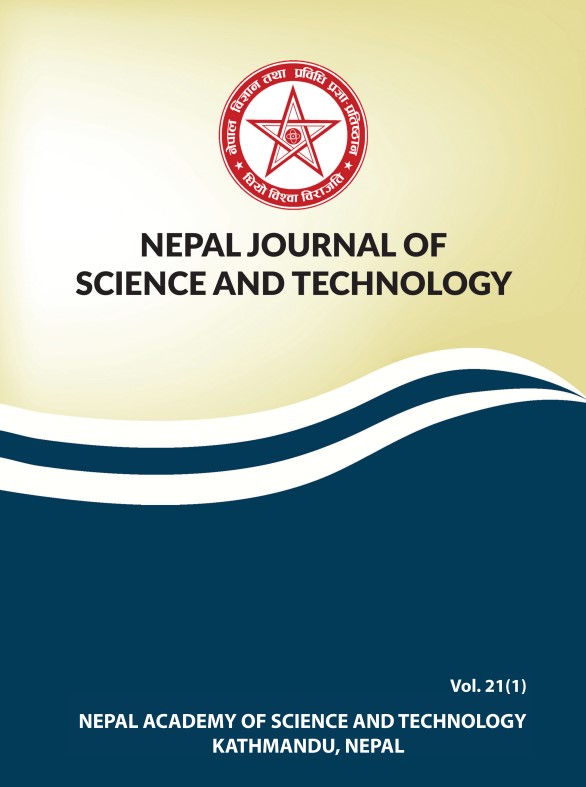In vitro Induction and Proliferation of Callus in Piper longum L. through Leaf Culture
DOI:
https://doi.org/10.3126/njst.v21i1.49892Keywords:
6-BenzylaminopurineAbstract
Piper longum L. (Family Piperaceae) is a well- known health promoter used to treat cough, chronic bronchitis, asthma, and diabetes mellitus. The study is aimed to develop a protocol for callus induction and proliferation in P. longum. The leaf explants from mature plants were cultured on an MS basal medium supplemented with various concentrations of plant growth hormones, viz. 2,4-Dichlorophenoxyacetic acid (2, 4-D), Kinetin (KN), 6-Benzylaminopurine (BAP), and α-Naphthalene acetic acid (NAA), as well as 10% coconut water. In primary culture, the callus was compact and light white. The best callus induction and growth were observed in the MS basal medium containing1.0 mg/L 2,4-D+ 2.0 mg/L KN at 12 weeks of primary culture. At eight weeks of secondary culture, the MS medium containing 2.0 mg/L BAP alone and 0.5 mg/L NAA + 2.0 mg/L BAP and 10% coconut water had the best callus proliferation. Compared to 2,4-D and KN alone, BAP alone supported rapid callus growth in the MS medium. In P. longum, large-scale callus formation from leaf explants could be exploited to produce, isolate, and increase bioactive secondary metabolites for therapeutic purposes.
Downloads
Downloads
Published
How to Cite
Issue
Section
License

This work is licensed under a Creative Commons Attribution-NonCommercial 4.0 International License.
Authors retain copyright and grant the journal right of first publication.




